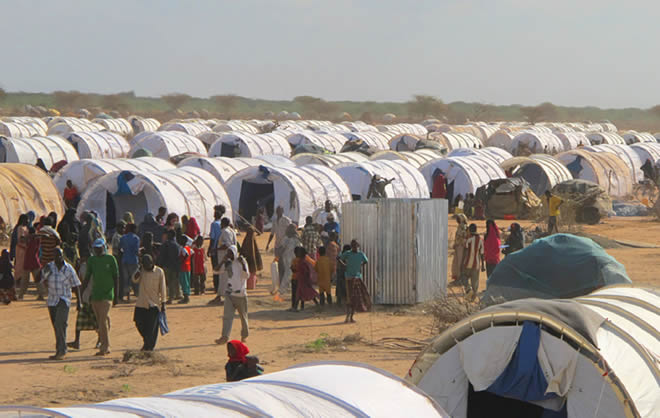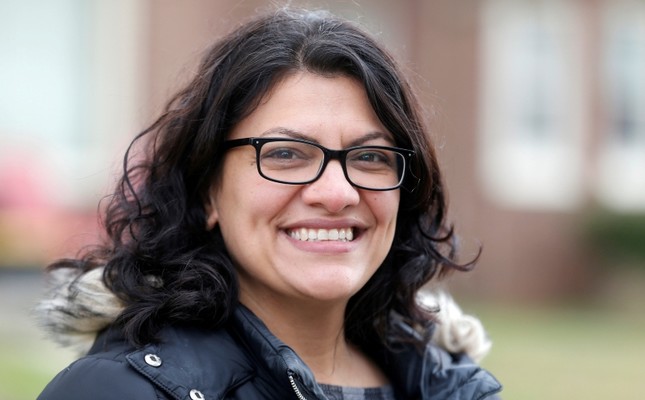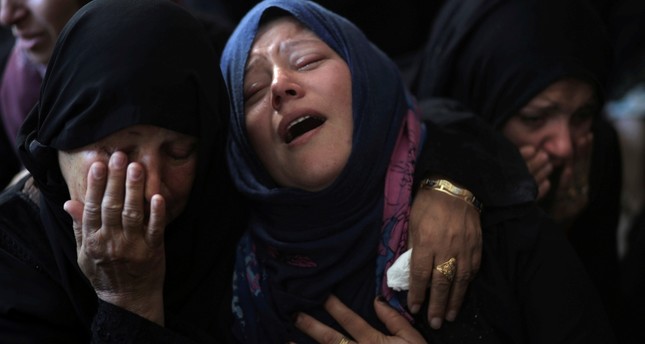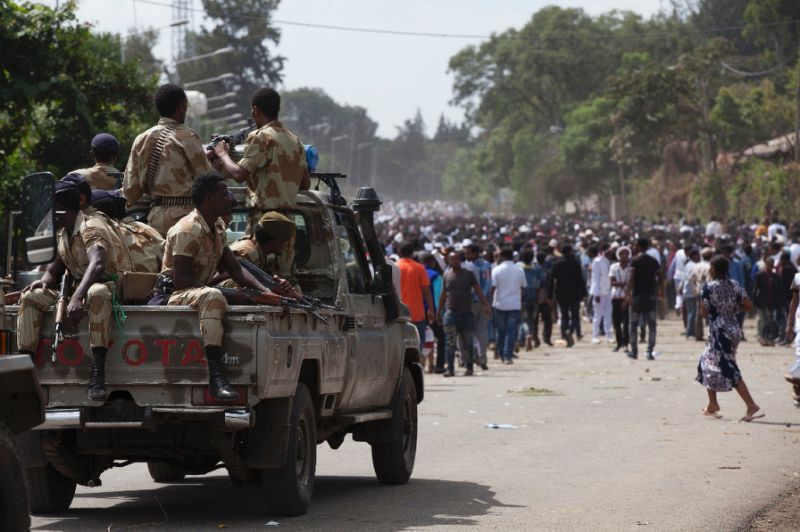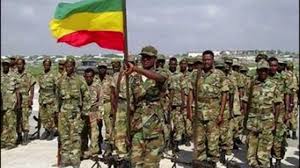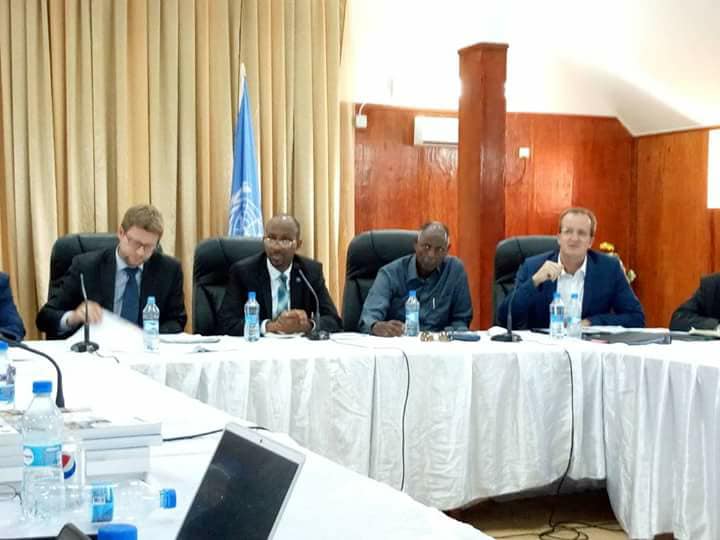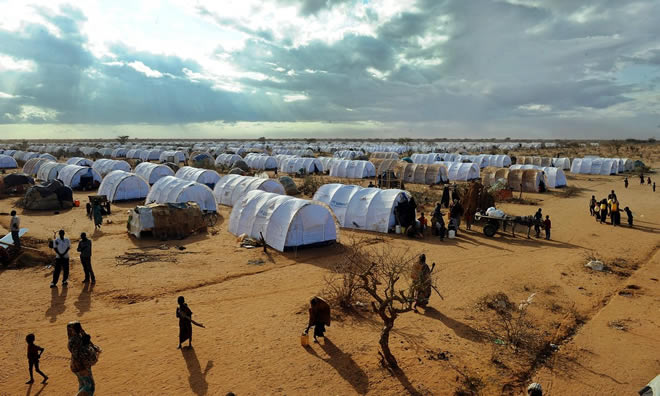
Photograph: Tony Karumba/AFP/Getty Images
The Kenyan government’s recent decision to close Dadaab camp and return all Somali refugees living there home caused huge international outrage and concern.
Just over a week ago, after negotiations between the Somali and Kenyan Presidents in Nairobi, a communique was released stating that the Somali government wants refugees returned home but in an orderly and safe manner “As per the Tripartite Agreement.”
The Tripartite Agreement is an agreement between the two Governments and the UN refugee agency, UNHCR, to voluntarily return Somali refugees from Kenya in a way which is orderly and then support them to resettle and integrate into their new communities effectively.
The issue of the closure of Dadaab camp caused public anger in Somalia and many Somalis felt that the Kenyan government was humiliating Somali refugees for political reasons.
“I agree that Somali refugees have been in Dadaab for a long time and that the Kenyan government has been generous to them by hosting them but the way the Kenyan government just turned on them was disgraceful,” said Mohamed Nur, a business man in Baidoa. “There is already an agreement in place and the Kenyans should respect that.”
“It’s wrong to accuse Somali refugees in Dadaab of terrorism because there is no evidence for it. Because refugees are powerless everybody is scapegoating them,” said a Dadaab resident who did not want his identity to be revealed as he currently workers as a contractor with a service provider to the camp.
The majority of Somali people agree that Somali refugees must return home as the conditions in the country is improving but they say they cannot just be dumped back into Somalia without the support they currently receive in the camps.
“We want Somali refugees home because they are Somalis like me but I don’t want them moving from refugee to IDP. It is bad for them and Somalia,” said Fartuun Kahin, a university lecturer in Mogadishu.
In his address to the Somali refugees in Dadaab during his first ever visit, President Hassan Sheikh Mohamud reassured the Somali refugees that while they will certainly have to return home, they will be returned in an orderly, safe and supportive manner which protects their dignity. He told the refugees that they lived in Kenya with dignity and that they would return home with dignity too.
Many refugees interviewed in Dadaab by IdaleNews.com during the Presidents historic visit wanted to return home but feared that the support they currently receive in the camps will end when they are repatriated.
“I have 4 children and my husband and I cannot find work. All my children were born in the camp and I have few links in Somalia,” said a refugee who did not want to be identified. “We are not living well here either, we get basic rations and live in bad homes, but here I have security and my children go to school. It is not much but it is better than nothing. I want to have this support when I return to Somalia otherwise my family cannot survive.”
The first visit of the new UNHCR chief, Filipo Grandi, last week to Mogadishu brought hope that the upcoming Tripartite Agreement discussions in Nairobi will yield responsible results for the Somali refugees while cooling the political temper in both countries. However, there are those that agree that Somalis in Dadaab were forgotten by the maze of international humanitarian projects.
“All humanitarian Agencies, including UNHCR, must now accelerate the work they are doing to prepare refugees for return in Somalia. We are identifying regional states where they will be settled and the required social service infrastructure must be in place for their return,” said a Somali government source who spoke under conditions of anonymity. “If this support is not in place then the refugees will not come and they will not integrate back into Somali life easily.”
The Somali government will return to Nairobi within this coming week to continue the Tripartite discussions with the Kenyan government and the issue of repatriation is still the most important topic on the table. As the Presidents of both nations agreed and stated in public, it is not whether or not the refugees will return, but when

